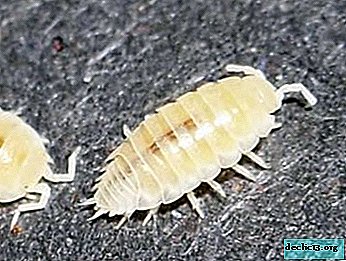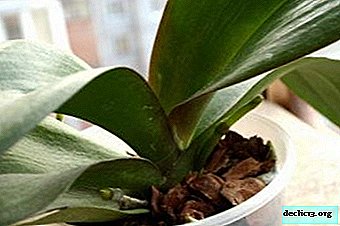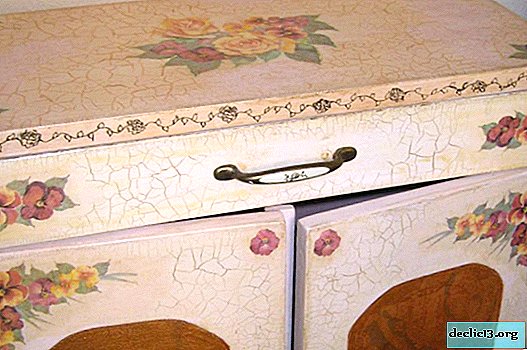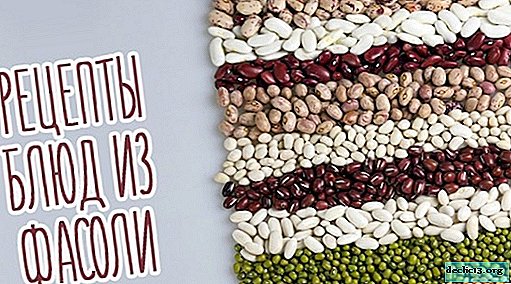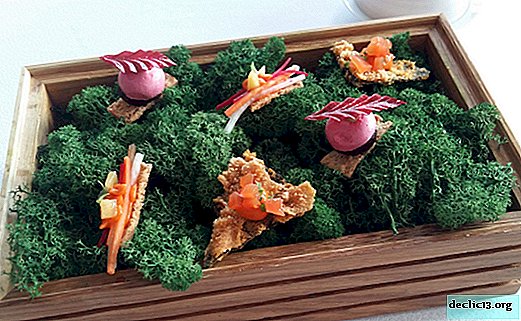Can I get rid of an allergy to lemon? Causes, symptoms and methods of treating ailment

Lemon is a fruit that has not only an interesting, invigorating taste, but also has healing properties. But the question is: can a person be allergic to this fruit?
Allergies to lemon develop in rare cases. Faced with this for the first time, a person is at a loss: where to go, what exactly caused the reaction, what treatment methods exist?
In this article, you can find answers to all these and many other important questions.
Causes of the disease in adults and children
Allergies to lemon are susceptible to people of any age, but in children it manifests itself more often and stronger due to weak immunity or with the wrong addition of lemon to the diet of a small person.Lemon stimulates the production of histamine, which causes allergy symptoms.. Therefore, in adults, allergies begin to occur if a large number of lemons are consumed in a short time, because then the production of histamine increases significantly. In such a situation, a pseudo-allergy occurs, however, an accurate diagnosis requires consultation with an allergist.
The cause of the true allergy is intolerance to the protein or various acids contained in the lemon, it is the immune system that reacts aggressively to them and fights them.
In this case, an allergy can develop not only against the background of the intake of lemon, but also in contact with food, cosmetics or medicines that contain its extract.
Another cause of the lemon reaction is heredity.. If at least one of the parents has an allergy, it is highly likely that it will be transmitted to children.
Symptoms
It is impossible not to notice the manifestation of an allergy to lemon, it appears on the skin in the form of red rashes, accompanied by itching and burning.
Malfunctions of the gastrointestinal tract (gastritis, nausea, vomiting, irritable bowel syndrome), respiratory system (shortness of breath, allergic rhinitis, sore throat) are observed.
In severe cases, reactions are likely that require urgent medical attention.. This is Quincke's edema, an asthma attack, anaphylactic shock.
Photo
Further on the photo you can see how outwardly the manifestation of allergy to lemon looks:




Diagnostic Methods
To make sure that your allergy is to lemon, you need to see a doctor and conduct clinical research in a clinical setting.There are several diagnostic methods:
- The method of scarification. A lemon solution is applied to the skin on the inner region of the forearm or back and small scratches are made with a special tool - a scarifier. The reaction is visible after 20 minutes.
- Prik test. It is carried out using a special needle, which has a limiter of 1 mm, it is at this depth that an allergen is introduced under the skin. The result is visible after 10 minutes.
- Computer diagnostics, or Voll method. This method allows you to set the allergen with high accuracy. Using computer diagnostics, it is much easier to adjust treatment in the right direction to achieve positive dynamics.
- Sublingual test. The study consists in applying the stimulus (natural lemon juice at a dilution of 1:10) sublingually. The reaction is considered positive with the appearance of edema, itching, hyperemia in the sublingual region. Sometimes skin rashes, sneezing and coughing are noted.
How to be treated with medications?
Medications are taken to combat the symptoms of a lemon allergy. Medicinal methods include the use of:
- antihistamines;
- sorbents;
- topical agents - ointments, cream and gels.
Antihistamines
 Antihistamines in the fight against lemon allergies act as histamine receptor blockers. Due to this, the manifestations of an allergic reaction are reduced when lemon, or its components, enters the human body.
Antihistamines in the fight against lemon allergies act as histamine receptor blockers. Due to this, the manifestations of an allergic reaction are reduced when lemon, or its components, enters the human body.
The most effective are drugs of the third or fourth generation, eg:
- Erius. It is used for rhinitis and allergic urticaria (rashes on the skin).
- Telfast. Eliminates almost all the symptoms of this pathological condition. The most safe drug among antihistamines.
- Loratadine. Reduces capillary permeability, prevents the development of tissue edema.
- Kestin. Eliminates itching, burning sensation of the skin and mucous membranes.
Is it necessary to take sorbents in parallel?
Along with taking antihistamines, doctors strongly recommend taking sorbents, for example, activated charcoal, Enterosgel or Polyfel. As a rule, these drugs effectively remove toxic substances from the body and contribute to a speedy recovery.Recommendations for the reception of sorbents:
- the drug must be used strictly according to the instructions;
- the course of treatment of allergies with sorbents is not more than 8 days;
- take the drug 1.5-2 hours before a meal;
- the interval between taking the sorbent and another anti-allergy drug should be at least 2 hours.
Means for external use
If rashes and itching appear after drinking lemon, then external remedies that are divided into:
- Non-hormonal. Appointed with mild itching, minor rashes (Bepanten, Vundekhil).
- Hormonal. With severe allergies, local symptoms are removed (Elokom, Advantan).
Immunotherapy
 When an allergy lowers the quality of life, they resort to immunotherapy. Its essence is to accustom the body to an allergen. To do this, the lemon extract is introduced into the body in a course, and it is necessary to increase the dose each time.
When an allergy lowers the quality of life, they resort to immunotherapy. Its essence is to accustom the body to an allergen. To do this, the lemon extract is introduced into the body in a course, and it is necessary to increase the dose each time.
Immunotherapy helps to reduce allergic reactions, up to the disappearance of clinical signs. The sooner you start therapy, the better, as it is proved that the best effect is achieved precisely at the initial stage of allergy development.
Immunotherapy has a number of contraindications:
- bronchial asthma;
- mental disorders;
- emphysema;
- oncological diseases;
- acute infectious processes;
- open form of tuberculosis;
- heart diseases;
- liver and kidney disease.
How to be treated with folk remedies?
To alleviate the symptoms of an allergy to lemon, not only medications are used, but also folk remedies. Effective Recipes:
- Calendula broth. To prepare a decoction of 10 grams of plant flowers, pour a glass of boiling water and leave for 5-6 hours. Use three times a day for a tablespoon.
- Drug collection. For cooking, you will need the following herbs: chamomile, dandelion root, field horsetail, St. John's wort. Take 50 grams of each ingredient, pour boiling water and keep on low heat for half an hour, then you need to cool and strain the infusion. Drink one glass a day on an empty stomach.
- Mumiye solution. To prepare the solution, two grams of mummy must be dissolved in a liter of warm water. It helps with skin reactions, to mitigate the symptoms, you need to wipe the rashes.
Dieting
The first thing allergists recommend is to follow an anti-allergic diet. The diet contributes to a successful recovery, so when a reaction to a lemon is detected, doctors advise restricting not only its consumption, but also products that cause cross allergies (oranges, tangerines, fruits and red vegetables).It should be removed from the diet or limit the use of foods that generally increase the risk of an allergic reaction, these are:
- nuts
- eggs
- seafood.
Leave in your menu:
- lean meats;
- greenery;
- vegetables;
- cereals.
Food processing is important., since during cooking, frying, the concentration of allergens in food decreases. Drink two liters of clean water daily.
Many believe that lemon is almost the only source of vitamin C, but this opinion is erroneous. A high content of this vitamin is present in blackcurrant, rosehip, and when consumed, it is possible to fill the body's need for vitamin C without consuming an allergenic product.
It is impossible to completely cure an allergy to lemons, you can only stop unpleasant symptoms. There is no more effective way to eliminate allergic reactions than eliminating contact with the allergen.


